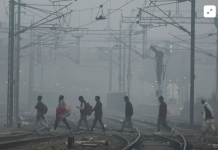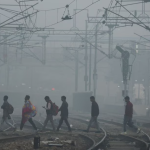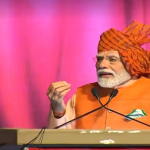At a time when the privacy under grievous threat, Indian Railways have divulged their plans to install face recognition systems for better surveillance to use facial recognition in major railway stations by the end of 2020 to fight crime. The system is currently being tested in India’s tech hub Bengaluru.
The primary idea behind installing the intelligent surveillance system is to monitor suspicious activities across stations and other important areas. “The railways will become like a virtual fortress. Without a physical, brick and mortar boundary wall, we will be able to make the whole system more secure,” a senior railway official told Reuters.
So far Bengaluru, Manmad and Bhusawal stations have received the face recognition technology backed by artificial intelligence. The Indian Railways will install various cameras such as the dome type, bullet type, pan tilt zoom type and ultra HD-4k cameras to get a better and clearer picture of what goes around in the railway stations. However, the decision to implement face recognition systems in railway stations has garnered mixed responses from the tech experts.
While some have claimed that the new system will provide greater security and efficiency, some have alleged that the benefits of the implementation of this system have not been explained clearly and that it might come at the cost of privacy losses. However, railway stations aren’t the only place these systems are being installed.
Raman Jit Singh Chima, Asia policy director at digital rights group Access Now, called the move by Indian Railways dangerous. He also raised concerns that the plan by railways didn’t reveal whether a third party is involved in the process and who apart from them can access a passenger’s data.
How do you know they are not leaking data? How do you know they are keeping it safely and not using it for other purposes? What the railways authorities seem to be doing right now is definitely intruding on privacy, not matching up to global standards on privacy or even facial recognition that democracies are adopting,” Chima told Reuters.
Earlier, the Ministry of Civil Aviation installed India’s first digital system called the Digi Yatra was installed at the Bengaluru International airport. The idea behind installing the recognition system was to allow passengers to check-in without producing any identity cards at the entry-exit checkpoints and aircraft boarding.
India’s decision to absorb the artificial intelligence in some of its major operations concerning the people of the country comes at a time when Google CEO Sundar Pichai had advised to take a cautious approach towards it.
“While we don’t support a ban on the facial recognition technology, we do encourage strong guardrails – particularly for public facial recognition, through regulations and other means. We recently published a framework for facial recognition to highlight key factors for consideration,” a Google spokesperson had said in a statement.















